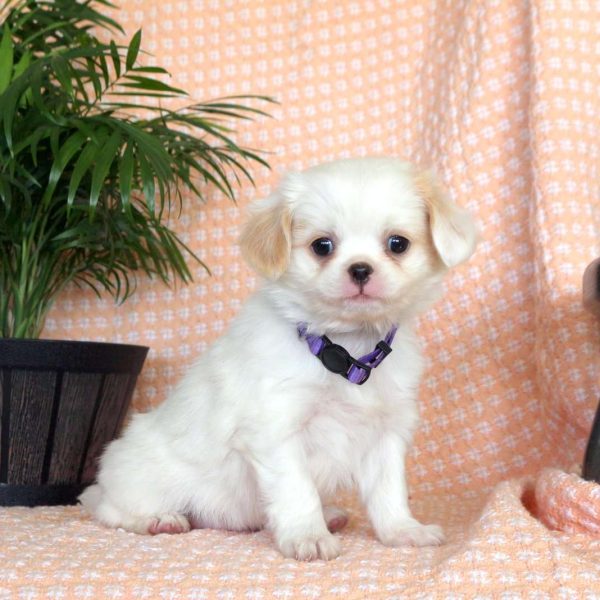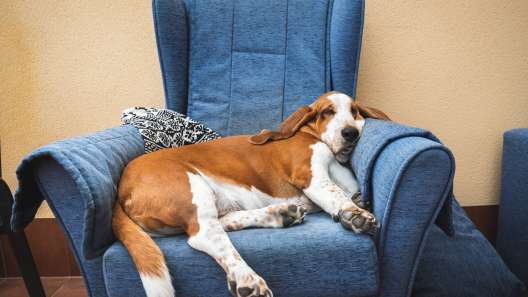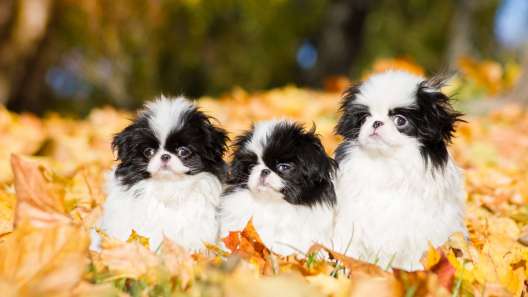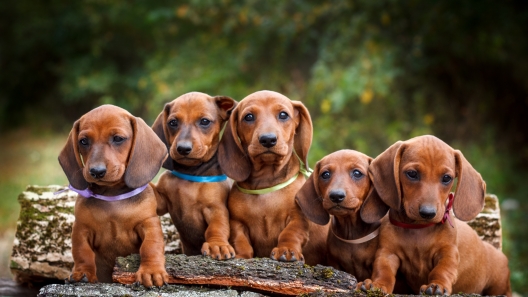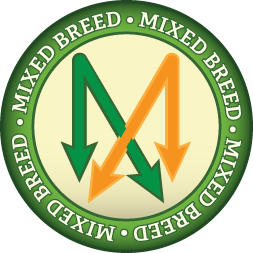
-
Activity Level:
moderate
-
Shedding Level:
moderate
-
Grooming Level:
high
-
Trainability:
moderate
-
Good for Novice Owners:
moderate
-
Adaptability:
high
-
Kid/Pet Friendly:
often
-
Prey Drive:
moderate
-
Watchdog:
aware
- Average Size: Small
- Average Lifespan: 10-12 years
Japanese Chin Mix Dog Breed Information
Overview
Temperament
Adaptability
Health
Owner Experience
Grooming
Activity Level
Size
Life Span
A Japanese Chin Mix is a cross between a Japanese Chin and another dog breed. Since a mix can end up with any traits from either or both parents, it’s important to ask the breeder about the other parent breed in the mix.
Should a Japanese Chin Mix take after their Chin parent, they will be a small companion breed with a sweet, affectionate, and gentle nature. Quiet and friendly, a Japanese Chin Mix enjoys spending time by your side.
A Japanese Chin tends to be an intelligent little dog with a charming personality. They tend to be quiet, friendly, and thrive on attention. They love nothing more than being around their favorite humans and tend to get along well with children, other, dogs, and other pets. They even tend to be open and friendly with strangers.
If the other parent breed has similar traits and a similar temperament, then you can expect a Japanese Chin Mix to be the same. You can also meet the mother in person to see what her temperament is like and what behavior she is modeling for her puppies. Although the breeder should have started some training and socialization, it is up to you to continue to train and socialize a puppy once you get them home.
Japanese Chin are highly adaptable dogs that do well in larger homes as well as apartments. They are sensitive to heat and to cold, but can handle some cold weather if you bundle up with some winter dog products while out on walks. Because they bond so closely with their families, they do not like to be left alone for long periods of time.
If the other parent breed is also highly adaptable, then you should be able to expect a Japanese Chin Mix to be the same. Because the other parent breed will still introduce their own potential quirks, you still want to make sure you have a talk with the breeder about them.
Although a Japanese Chin Mix could be healthier than a purebred dog, it all depends on the parents and good breeding practices. Just as they could inherit none of the conditions common to their parent breeds, a mix could end up inheriting some or all of them.
From the Japanese Chin side, potential health concerns to be aware of in a Japanese Chin Mix include cataracts, epilepsy, heart murmurs, and patellar luxation. There is also a GM2 mutation that causes a fatal neurological condition, so it is essential that the Japanese Chin parent has a DNA test to screen for this mutation.
Reputable breeders will screen their dogs to avoid passing issues to puppies, so make sure you are asking about the health and genetic history of both of the parents. You can also ask about DNA tests, other tests, and any health clearances that have been done.
As a small dog breed, a Japanese Chin Mix will also be more prone to developing dental diseases later in life. Gum disease in dogs is serious and leads to other health issues, so proper dental care is important.
Although Japanese Chin are intelligent dogs that can pick up things quickly, they are also notoriously stubborn and will often choose to not listen. This makes them moderately trainable and a challenge for first-time dog owners.
If the other parent breed also presents some training challenges, then you should be prepared to enroll a Japanese Chin Mix in puppy training classes. Even if the other parent breed is a good fit for first-time dog owners, you still want to be prepared for obedience classes.
A Japanese Chin Mix can inherit a coat just like one of their parents or a coat that is truly a mix of both. Should they get the Chin coat, they will shed moderately year-round with a little increase during seasonal changes. Brushing on a weekly basis and bathing every 4-6 weeks will be required.
In addition to coat care, you will also need to take care of your Japanese Chin Mix’s nails, ears, and teeth. Cutting your dog’s nails once or twice monthly is usually enough to keep nails from growing too long.
Ear checks on a weekly basis with careful cleanings as needed can help prevent ear infections. Daily dental care in addition to cleanings at the vet when needed can help prevent dental diseases later in life.
Although they are small, Japanese Chin will have bursts of energy when they play. This puts them in a moderate activity range, but daily walks plus some playtime throughout the day are usually enough for them as they tire out easily.
If the other parent breed is similar, then you can expect a low to moderate range out of a Japanese Chin Mix. If the other parent breed has a higher energy level, then you will need to be prepared for that potential activity range.
Fully-grown Japanese Chin usually stand 8-11 inches tall and weigh 7-11 pounds. The other parent breed can have a big effect on this, especially if they are the mother.
It’s not a guarantee, but you can meet the mother in person to get an idea of what size to expect in a fully-grown Japanese Chin Mix.
Japanese Chin generally live for 10-12 years. Although the other parent breed may affect this slightly, you should be able to expect a similar average life span from a Japanese Chin Mix.

